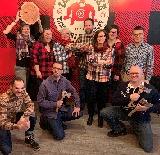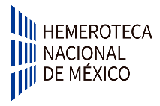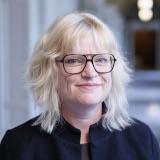Blog
Unless otherwise stated, content is shared under CC-BY-NC Licence
Web Archiving the 2021 Federal Election at Library & Archives Canada – A Look Behind the Curtain
Emily Monks-Leeson, Russell White and Kevin Palendat from Library & Archives Canada.
On September 20, 2021, Canada held its 44th federal election following a 36-day campaign. As Canadians turned to their preferred news and social media outlets, Library and Archives Canada's Web and Social Media Preservation Program began crawling and preserving election-related websites as events unfolded online. This was the sixth election LAC had captured through web archiving, and when it comes to the dynamic nature of such a task, we’ve found that frequency is a friend. We had a background of knowledge and experience to draw on, dating back to 2006 when we archived a modest 21 websites totaling 23 GB of data. Our efforts have intensified with each election to the point where, in 2021, we have crawled over 300 seed URLs totaling around 1.5 TB of data (and counting).
Digital preservation of digital documents of an NGO in Mexico
Claudia Muñoz López is a student of the master’s degree in Library and Information Studies at the National Autonomous University of Mexico.
The following blog is available in Spanish below.
Non-governmental organizations are non-profit associations that provide services to society on the most diverse purposes: education, culture, human rights, environment, hospital aid or support to vulnerable communities, among many others. Their activities have an impact on society and the communities with which they work.
As organizations, documents recording their activities are useful both for the efficiency of the organization itself and for society so that it can understand its history and social, cultural and political influence. However, what happens when most of these documents are digital and do not have a digital preservation plan? E-mail, websites, databases and multimedia files are widely used documents that reflect the day-to-day work of organizations and do not have a paper version.
Generating value with digital preservation in the National Library of Mexico
Ana Yuri Ramírez-Molina, Alberto Castro Thompson, Lisandro Pablo Olivares, Coordinación de Innovación y Estrategia Digital de la Biblioteca Nacional de México.
Due to the events of the pandemic, in Mexico and all around the world, people have modified the way they work and communicate and have turned to new technologies that facilitate digital connections. These technologies are important in the teaching and learning process and can have a significant social impact if used in education as a means of achieving social development. Institutions in charge of safeguarding the knowledge generated by the society play a key role in this permanent process of human development, as they are holding responsibility of ensuring continuity of digital heritage materials as long as they are needed.
See a barrier? Let's knock it down...
Nancy McGovern is Director of Digital Preservation at MIT.
WDPD’s theme Breaking Down Barriers is perfect for this year! I know I’ve been working on all kinds of barriers this year. These are some of my barrier busting examples from this year:
ICA Managing Digital Archives course: This one comes first because it’s the most recent – it’s launching today! It’s been so rewarding to collaborate with Margaret Crockett at ICA, my co-creator, with significant contributions from Kari Smith of Global Archivist. One of our objectives was to help organizations with limited resources, a common barrier, to build their capacity by providing an accessible and comprehensive course that is lifecycle-based and grounded in standards and good practice. More info here: https://www.ica.org/en/ica-online-course-managing-digital-archives
Building bridges with the Big Data of the Past
This post was written by the team of the Time Machine Organisation.
This year´s World Digital Preservation Day’s theme “Breaking Down Barriers” points to how digitisation is the road into the future and holds numerous opportunities in various areas. Moreover, “the aim of World Digital Preservation Day is to create greater awareness of digital preservation that will translate into a wider understanding which permeates all aspects of society – business, policymaking, personal good practice” (cited from dpconline.org) – a conviction that is shared by the Time Machine network and that we would like to outline for you on this occasion.
Breaking Down Barriers: NDSA’s Evolving Role in the Global Digital Preservation Community
Dan Noonan is Associate Professor/Digital Preservation Librarian at The Ohio State University and the Coordinating Committee Chair at NDSA.
This year as we celebrate World Digital Preservation Day, we contemplate how we can break down barriers to enable success, not just for ourselves and our personal institutions and organizations, but for the greater global community. Digital preservation is not a state that is achieved; rather it is a comprehensive set of managed activities that are necessary to provide continued access to digital objects, beyond the limits of media failure or technological change. These managed activities do not happen within one division, department or unit of an institution or organization, nor do they necessarily happen solely within one particular entity. Therefore, it is appropriate to consider the framework for this collective work as an ethos, which is described as the characteristic spirit of a people, community, culture, or organization as manifested in its attitudes and aspirations.
Partnering with publishers to break down barriers to preserving new forms of scholarship
Karen Hanson is Senior Research Developer at Portico.
The scholarly community continues to experiment with new ways to present research. Today’s publications may include features such as interactive visualizations, data-driven experiences, extensive multimedia integrations (often with media hosted on third party platforms), user annotations or comments, non-linear navigation, and more. Meanwhile, keeping pace with preserving this increasingly complex network of born-digital materials is ever more challenging. To preserve these forms of scholarship effectively and at scale, one path forward is for preservation experts, platform developers, and publishers to work together to break down technical barriers for preservation.
The Last Long Mile from Transfer to Ingest
Jeanne Kramer-Smyth is Digital Archivist with the World Bank Group Archives.
There are so many cliches about how hard it is to get from “almost done” to “done”. Cliches like, “the last 10% of the work takes 90% of the time” and “the last mile is the longest” can feel all too real. The barrier I am most obsessed with these days is the “last mile” between transfer and ingest of digital records.
At the World Bank Group Archives’ digital preservation program we are diligent in our efforts to work on all the traditional components of archival work with digital records, including appraisal, transfer, ingest, description, preservation, and access. Each component presents its own challenges, but getting from transfer (which I define as “bringing digital records into archival custody”) to ingest (which I define as “moving digital records into the Digital Vault, our digital preservation platform”) often feels larger than all the others.
New Guidance and Open Source Tools from FADGI
Kate Murray, Digital Collections Management & Services at Library of Congress.
The Federal Agencies Digital Guidelines Initiative (FADGI) Audio-Visual Working Group, a collaborative group of US federal agencies led by Library of Congress since 2007, has had a busy year! We’ve released three updated projects in September to support its ongoing work with developing good practice guidelines and open source tools for digital audiovisual content and digital preservation practices.
Developing a Digital Preservation Training Plan at NARA
Elizabeth England, Digital Preservation Specialist and Leslie Johnston, Director of Digital Preservation both from the U.S. National Archives and Records Administration.
As part of its Digital Preservation Strategy, the United States National Archives and Records Administration (NARA) has goals associated with the ongoing review of its program and with ensuring that agency staff have appropriate training. Discussions with our internal digital preservation advisory group confirmed the findings from our ISO 16363 self-audit in 2019 that NARA staff in a variety of roles are unfamiliar with the goals and activities that are part of digital preservation, as well as the technologies used, NARA-specific activities and programs, and the regulations and guidance that NARA produces and abides by to ensure that the permanent born-digital and digitized records of the federal government are managed, preserved, and made accessible.


























































































































































